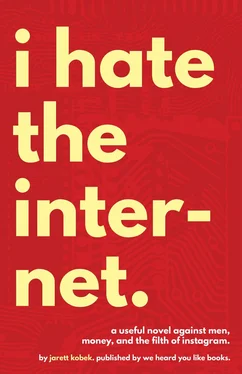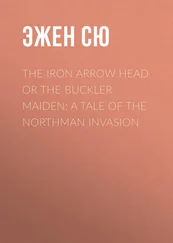Baby wasn’t the only person looking at America and feeling as if its unwitting citizens were born into complex and impossible systems of unfathomable evil.
The story of the season was about a eumelaninless guy named Edward Snowden, who contracted for an American intelligence agency called the National Security Agency.
The NSA was like the CIA, except the NSA didn’t have field agents and hadn’t funded the creation of American literary fiction.
Snowden had worked for the CIA before he worked for the NSA. But that was long after the CIA had stopped funding literary fiction.
You had to give the CIA credit. For an agency marked by a persistent tone deafness of cultural approach, they had realized literary fiction was completely pointless. No one cared about good novels .
The funding of good novels was based on an abandoned misapprehension that writers, being the apparent creators of culture, had some impact on contemporary international affairs.
This was, of course, insane.
The men who worked at the CIA were something of an aesthetic vanguard. They had learned a lesson in the mid-Twentieth Century that American writers still couldn’t grasp in the early years of the Twenty-First.
The creators of culture had no impact on anything. The only thing writers were good for was sending messages across time.
The people who controlled mass production and the flow of meaningless information were the rulers of the modern world.
Now the CIA funded things that really mattered, like computer networks and systems of global surveillance.
When Snowden was working for the CIA, he had worked with their computer networks and systems of global surveillance.
At the NSA, Snowden was given access to a wide range of information about various programs instituted by the agency. Snowden found much of this disquieting.
He discovered that the NSA was funding elaborate computer networks which put all of the world’s Internet communications under surveillance. The NSA could track everything that everyone did on their computers and cellphones.
Snowden was appalled.
This was a bit naïve. The Internet was a creation of the US Government’s Department of Defense. It was built as a weapon against the Soviet Union.
To think that a government which had created a tool wouldn’t use that tool to perform the basic task of every government, which is to say exert control over the lives of its citizens, was a bit strange. It was an expectation akin to running beneath Wernher von Braun’s V2 rockets and hoping you’d be showered with flowers rather than death.
Snowden gathered up an unfathomable number of documents circulating inside the NSA. These documents bore evidence of the NSA’s systems of global surveillance. These systems had been constructed with help from companies like Google, Facebook and Apple.
Snowden contacted several journalists and staged an elaborate leak of these documents to the world media. Much of this was orchestrated from a hotel room in Hong Kong, surrounded by media hacks who drooled over his every word.
Snowden’s document dump was the public culmination of an anxiety about mass production and information technology. He wasn’t the only person feeling this concern.
A great number of people in developed nations were very worried about the effects of a fully computerized society on privacy .
This discussion was happening primarily amongst the middle classes. The truly rich didn’t care about privacy . They could buy their way out of anything. Poor people didn’t care about privacy because poor people lived in social milieus where privacy did not exist.
The souls and bodies of the poor were property of the world’s governments. They were the raw material burned in the fires of capitalism. Their private lives were subject to massive police and governmental intrusion. Thus it was and always would be.
The idea of privacy was rooted in the concept of individualism. As such, it was impossible to have privacy when the systems of control refused to see you as an individual.
Nowhere was this more true than in the lives of African-Americans. Their privacy was fucked from the beginning. There’s no privacy when Ole Massa rapes your whole family. There’s no privacy in the slave quarters. There’s no such thing as privacy when the police systematically target you for every manner of abuse and stitch you up on bullshit drug charges. There’s no such thing as privacy when every person on the street suspects you of anything.
Watching the media coverage of Snowden’s revelations, it was hard not to feel like the world had been transformed.
It had become a place where the greatest concern was whether or not mass produced cellphones were turning White people into Black ones.
When Edward Snowden made his foray into the seedy world of hotel room revelations. he brought along some reading material. He had two books with him.
The first one was the hardcover edition of Homeland by Cory Doctorow. It was published by an imprint called Tor Teen.
The second book was a trade paperback of Baby’s Annie Zero.
A Buzzfeed contributor wrote an article about Adeline’s twenty best tweets. Adeline was aware of Buzzfeed because Buzzfeed articles were the only things that people shared on Facebook.
These articles always appeared in the same format. These articles always appeared as lists.
Like: 25 Things That Get Harder After 25.
Like: 35 Things You Will Never See Again In Your Life
Like: 25 of Kanye West’s Most Thought-Provoking Tweets.
Like: 25 Things That Were Normal in 1999.
Buzzfeed made money by serving content sponsored by its advertisers, which was a seamless way of mixing entertainment and product placement. It made other advertisements on the Internet look like total shit.
Most of the lists on Buzzfeed were built of material harvested from the Internet. The creators of the harvested material had very little say over Buzzfeed’s harvesting. The creators of the material harvested were expected to eat whatever garbage the world served them.
The lists were accompanied by light commentary in simplified language. People had compared the writing style to book reports delivered by elementary school students.
Buzzfeed was one of the most popular sites on the Internet, which was a wonderful place for reading lists of tweets, learning about the construction of White Privilege, and critiquing Lady Gaga’s bitchin’ beach-bod.
20 Best Tweets from M. Abrahamovic Petrovitch
People know her as the artist of Trill with the name of a Russian man. After a video flame-out in a classroom, she started tweeting. Here’s the twenty best examples of how she uses Twitter!
1. On becoming a Hindu.
Given the predictable wrongness of crowds and the prevalence of #YOLO, I am forced to conclude in the factuality of reincarnation.
2. Disinterest in Catholicism.
Pope Francis says that priests must work ‘amid the muck of life.’ I should be quite happy with a plumber amidst the muck of my bathroom.
3. Critiquing fellow artists.
Saw more images of George W. Bush’s paintings. Like peering into the shattered mind of a suicidal beagle that’s lost depth perspective.
4. Harsh.
Heard Kim Kardashian is 21st Century Jayne Mansfield. My hope is that it’s a matching set and Allah sends both the Buick and the truck.
5. Let me guess. The other is Portland.
San Francisco, California: one of America’s two cities where residency comes with an instruction manual for soy-free living.
Читать дальше












